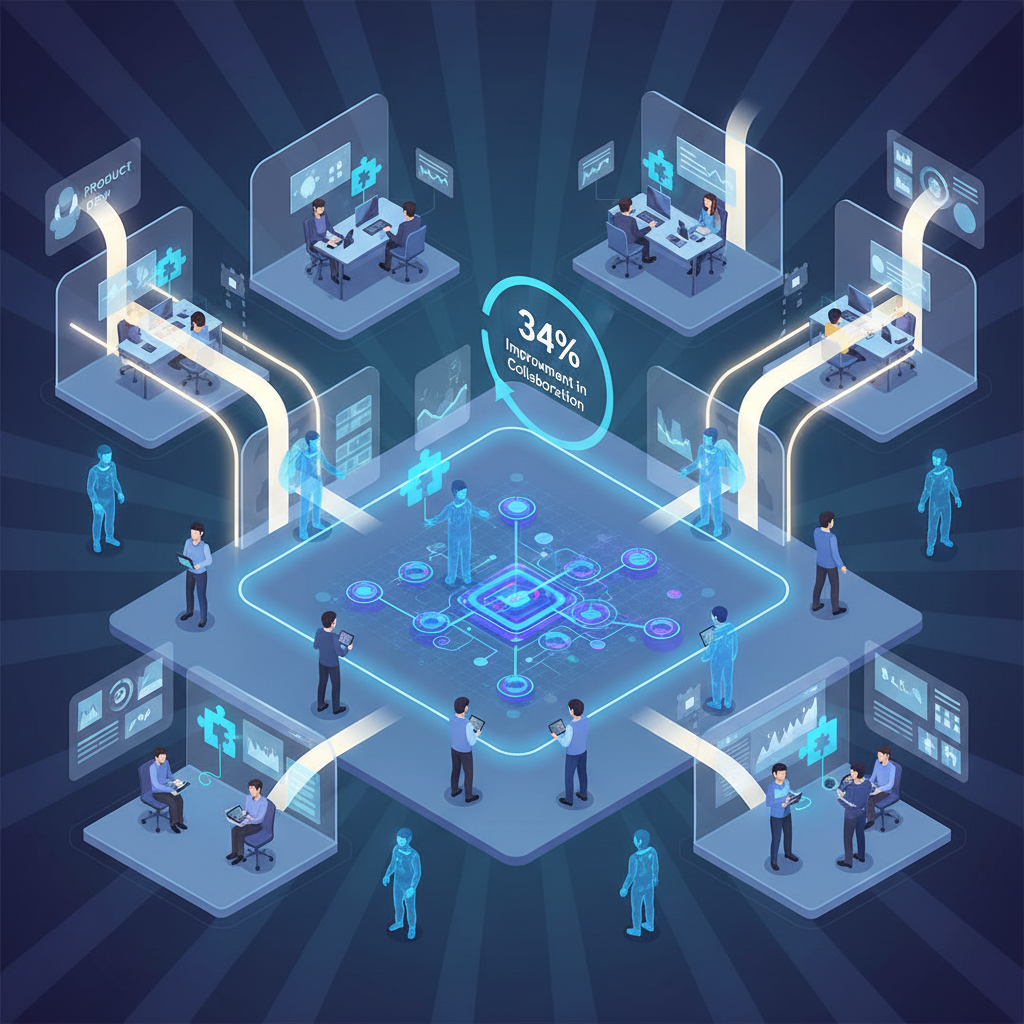
Frameworks, core principles and top case studies for SaaS pricing, learnt and refined over 28+ years of SaaS-monetization experience.
Thank you! Your submission has been received!
Oops! Something went wrong while submitting the form.
Join companies like Zoom, DocuSign, and Twilio using our systematic pricing approach to increase revenue by 12-40% year-over-year.

In today's fast-paced business environment, effective communication stands as the cornerstone of successful teamwork. Yet, despite technological advances, organizations continue to struggle with meeting efficiency, information silos, and collaboration bottlenecks. Enter agentic AI—autonomous AI systems that can perceive, decide, and act independently to optimize team communication. This emerging technology promises to revolutionize how teams collaborate, making "collaboration intelligence" more than just a buzzword.
Research from Harvard Business Review reveals that executives spend an average of 23 hours per week in meetings, yet 71% of those meetings are considered unproductive. Meanwhile, McKinsey reports that employees spend nearly 20% of their workweek searching for internal information or tracking down colleagues for assistance.
These statistics highlight a fundamental truth: despite our advanced digital tools, we're still struggling with basic communication challenges that hamper productivity, innovation, and employee satisfaction.
Unlike conventional communication platforms that simply facilitate exchanges, agentic AI systems actively participate in the collaboration process. They operate with a degree of autonomy, allowing them to:
Dr. Iyad Rahwan, Director of the Center for Humans and Machines at the Max Planck Institute, explains: "The difference with agentic AI is its ability to not just respond to commands but to anticipate needs and take initiative within predefined parameters."
Agentic AI is transforming meetings through capabilities that go far beyond simple transcription:
Gartner predicts that by 2025, 75% of enterprise-generated meeting content will be created, analyzed, and acted upon by AI systems, dramatically increasing the ROI of meeting time.
Collaboration intelligence powered by agentic AI helps information move efficiently through organizations by:
A 2023 study by MIT Sloan Management Review found that organizations using AI-enabled knowledge management systems reported a 34% improvement in cross-team collaboration and a 28% reduction in redundant work.
Perhaps most powerful is how agentic AI can analyze and enhance communication patterns themselves:
"What's remarkable about these systems is they don't just solve immediate communication problems—they help teams develop better communication habits over time," notes Dr. Anita Williams Woolley, expert in collective intelligence at Carnegie Mellon University.
Despite its promise, integrating agentic AI into team environments presents several challenges:
Teams may resist collaboration intelligence systems that feel intrusive or monitoring-focused. Successful implementations prioritize transparency about data usage and give team members control over their participation levels.
Agentic AI must seamlessly fit into established processes rather than requiring teams to adapt to new systems. The most effective implementations start with specific pain points and gradually expand as teams experience value.
While agentic AI can optimize communication, human judgment remains essential for context understanding and relationship management. Organizations must carefully balance automation with human oversight to avoid over-reliance on AI recommendations.
Looking ahead, agentic AI promises even more sophisticated collaboration intelligence capabilities:
According to Accenture's Technology Vision 2023 report, organizations that effectively implement AI-powered collaboration tools are projected to see up to 50% higher team performance compared to those that don't.
For organizations looking to enhance their collaboration intelligence with agentic AI, consider these starting points:
As agentic AI continues to evolve, its capacity to enhance team communication will only grow. Organizations that thoughtfully integrate these technologies today will be positioned to build truly intelligent collaboration systems that amplify human capabilities while respecting human judgment.
The future of work isn't just about artificial intelligence—it's about collaborative intelligence that emerges when humans and AI systems work together effectively. By embracing agentic AI as a communication partner rather than just a tool, teams can overcome longstanding collaboration challenges and achieve new levels of collective performance.

Join companies like Zoom, DocuSign, and Twilio using our systematic pricing approach to increase revenue by 12-40% year-over-year.